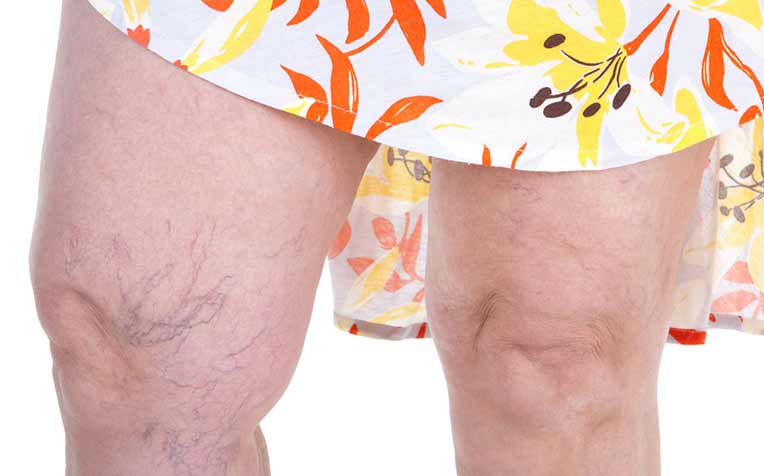HealthXchange will NEVER ask you to transfer money over a call. If in doubt, call the 24/7 ScamShield helpline at 1799, or visit the ScamShield website at www.scamshield.gov.sg.
Venous Insufficiency Manifests as Varicose Veins

Venous insufficiency is largely left untreated as it appears as varicose veins and thought to be part of ageing.
Venous insufficiency is a common condition: one in five people suffer from it worldwide. In venous insufficiency, blood flows back towards the feet instead of returning to the heart because of faulty vein valves, and which commonly manifests as varicose veins.

Venous insufficiency often goes unnoticed
However, according to Dr Chong Tze Tec, Senior Consultant and Head, Department of Vascular Surgery, Singapore General Hospital (SGH), a member of the SingHealth group, this condition is largely undiagnosed and untreated.
“Most people just don’t know about it. Their legs may feel heavy and they may see unsightly varicose veins and pigmentation, which they think is a normal part of ageing. They also tend to think it is just a cosmetic problem even though it is not. It can become a serious medical condition,” he said.
In its early stages, putting the feet up is often enough to relieve the feelings of heaviness or fatigue. As the condition advances, however, unsightly varicose veins, swelling of the leg, discolouration of the skin, eczema and ulcers can develop. One study suggests that 30 per cent of untreated patients will have more serious problems within six years, including the chance of the vein rupturing and bleeding heavily.
Venous insufficiency: Who are at risk
The condition tends to affect the:
- Elderly
- Obese
- Pregnant women
- Those who have to stand for long periods of time.
It also is more common among people with a family history of the problem.
Venous insufficiency symptoms
Patients who have the following symptoms should seek medical advice:
- Swelling of the legs and ankles
- Feelings of heaviness
- Fatigue
- Aching, cramping, burning or itching in the legs
- Discoloration of the skin
- Ulcers and open wounds
Beyond aesthetic improvements, symptoms such as swelling, heaviness, aching, cramping and itching should be alleviated once venous insufficiency is treated, Dr Chong said. "After a long day, legs will feel lighter and patients will experience an improvement to their quality of life.”
Read on to learn about the quick and painless treatment for venous insufficiency.
Ref:O17
Contributed by
Related Articles
Public Events
Get the Health Buddy App
© 2025 SingHealth Group. All Rights Reserved.

















 Get it on Google Play
Get it on Google Play